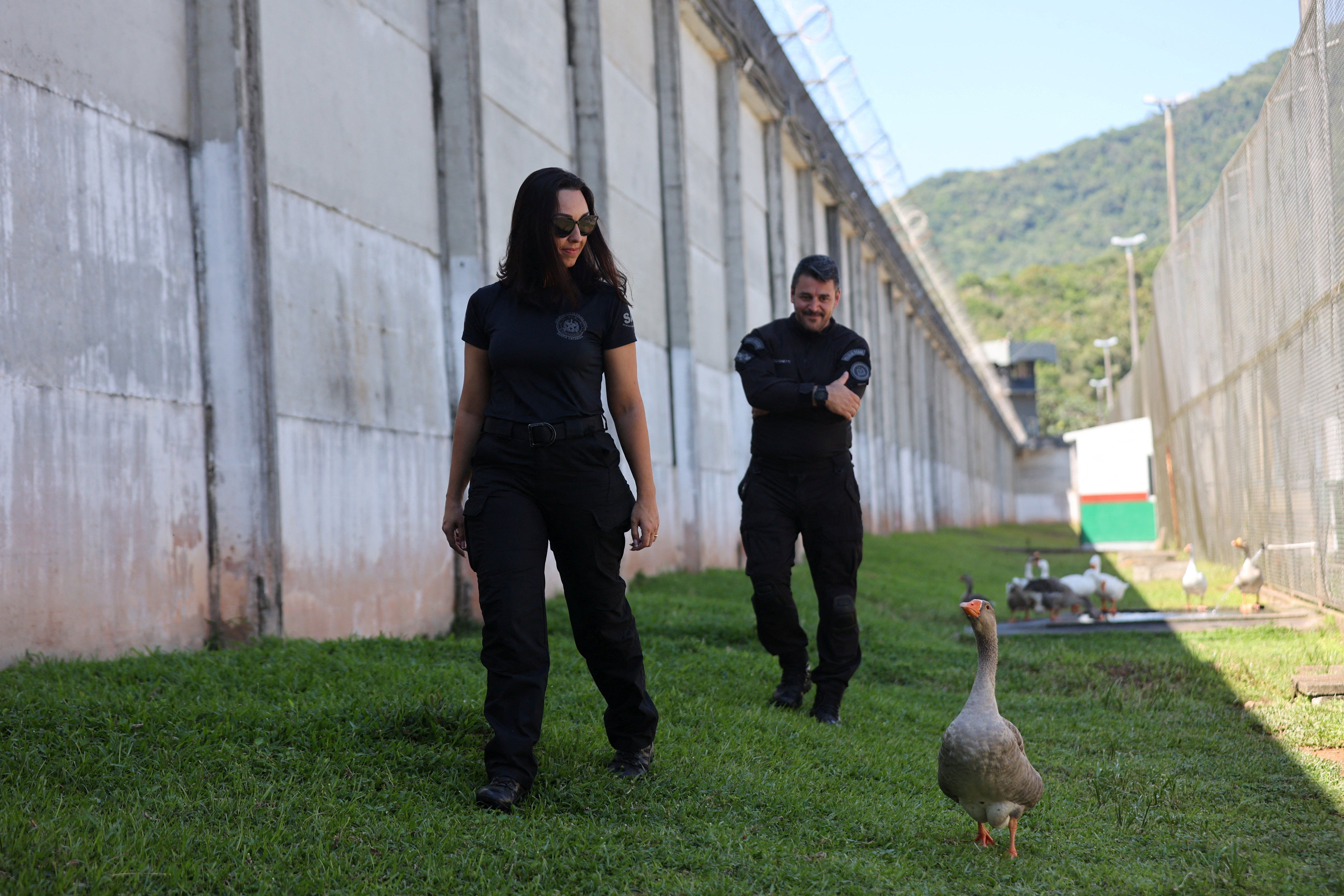“Geese agents” have been
enlisted to replace dogs guarding the perimeter of a prison in Brazil’s southern state of Santa Catarina. While this isn’t the first time a prison has goosed up security – geese, after all,
know how to fight – modern surveillance and humans tend to do a better job.
The corrections goose: Known for loud and aggressive behavior – ask a Canadian – these vigilant honkers can alert security to any movement while leading would-be escapees on a wild goose chase.
A small flock of fluffy patrollers led by head officer “Piu-Piu” will work in conjunction with electronic and in-person surveillance measures already in place, roaming between the prison’s inside fence and outer wall.
So, is down the new black? Brazil’s new geese agents could not be reached for comment … and we hope they’re not offended by being left off our Top 5 political animals of 2023. But we’ll be watching to see whether Piu-Piu and his prison pals can ensure that anyone trying to flee finds their goose gets … thoroughly cooked.
